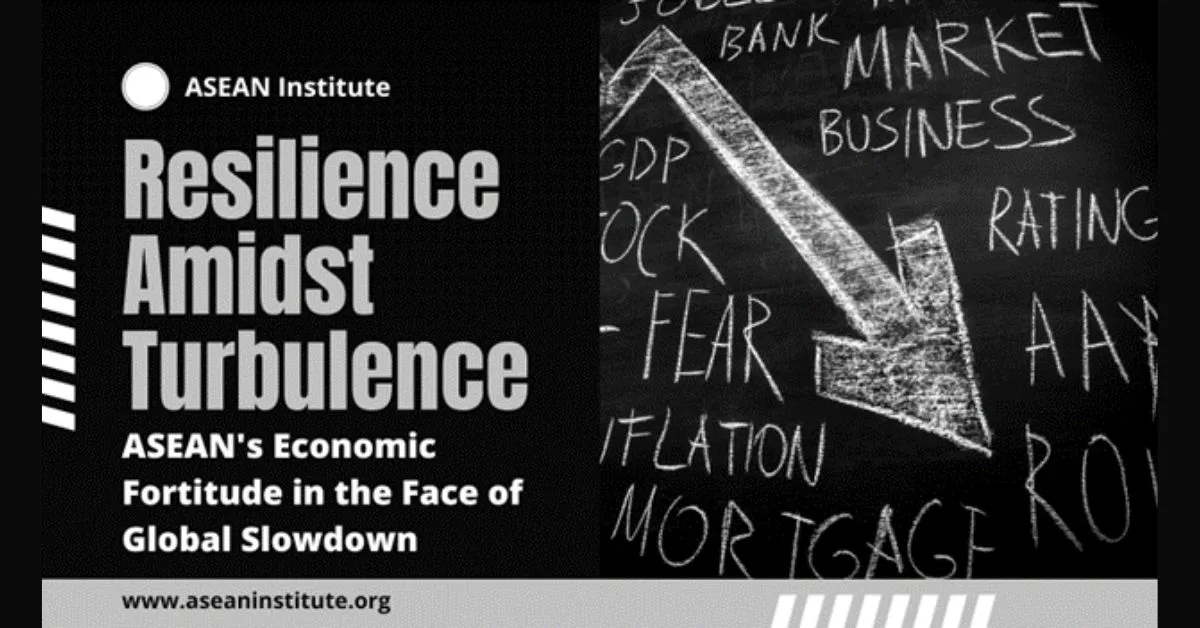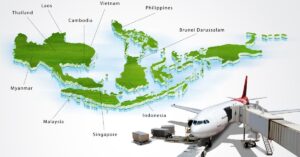In the context of 2023, the global economic landscape presents a tableau of complexities, with a pronounced slowdown affecting nations across the globe. This report, steeped in rigorous analysis, explores the ramifications of this global economic deceleration on the ASEAN region, underscoring the varied impacts on its member states, with a particular focus on the resilience exhibited by domestic demand-led economies like Indonesia and the Philippines.
Introduction: A Global Perspective
The current global economic milieu, characterized by a slowdown in activity and demand, poses significant challenges to the ASEAN region. This analysis aims to unravel the layers of this complex scenario, providing a comprehensive understanding of how these macroeconomic headwinds are influencing ASEAN economies, and identifying the unique position of nations with robust internal markets. (International Monetary Fund, 2023).
The Global Slowdown: A Synopsis
The genesis of the global slowdown can be traced to a confluence of factors: geopolitical tensions, supply chain disruptions, and lingering effects of the COVID-19 pandemic. (World Economic Forum, 2023). This triad of challenges has culminated in reduced economic activity globally, as evidenced by International Monetary Fund (IMF) reports indicating a contraction in major economies. (International Monetary Fund, 2023).
ASEAN in the Global Economic Context
Within this global framework, the ASEAN region stands as both a participant and observer. Historically buoyant economies are now facing the headwinds of reduced external demand and investment inflows. (Asian Development Bank, 2023). The Asian Development Bank (ADB) highlights how these external pressures are leading to a moderation of growth prospects in the region. (Asian Development Bank, 2023).
The Resilience of Domestic Demand-Led Economies
However, within this milieu of economic moderation, a distinctive pattern emerges in ASEAN nations like Indonesia and the Philippines. These economies, propelled by robust domestic demand, have displayed a remarkable degree of resilience. This phenomenon can be attributed to their large internal markets and sustained consumer spending, as outlined by reports from the World Bank.
Indonesia and the Philippines: Case Studies in Economic Resilience
Indonesia and the Philippines serve as exemplars of this resilience. (World Bank, 2023). Both nations have leveraged their large domestic markets to buffer against global economic headwinds. Policy measures in these countries, focusing on stimulating internal consumption and investing in infrastructure, have been pivotal in sustaining growth, as observed by ASEAN economic surveys. (ASEAN Economic Review, 2023).
Policy Implications and Strategic Directions
For policymakers in the ASEAN region, these observations necessitate a strategic reorientation. (Institute of Southeast Asian Studies, 2023). Emphasis should be placed on strengthening domestic markets, diversifying economic bases, and fostering regional cooperation to mitigate external vulnerabilities. The ASEAN Economic Community (AEC) blueprint provides a foundational framework for such strategic realignment. (ASEAN Secretariat, 2023).
Conclusion: Charting a Course for Stability and Growth
In conclusion, this analysis elucidates the multifaceted impact of the global economic slowdown on the ASEAN region, highlighting the resilience of domestic demand-led economies. As ASEAN navigates these turbulent times, the path forward lies in harnessing the strength of internal markets, whilst adopting collaborative and strategic measures to bolster regional economic stability and growth.
References:
International Monetary Fund. (2023). World Economic Outlook: Managing Slowdowns and Recoveries. Washington, DC: International Monetary Fund.
World Economic Forum. (2023). Global Risks Report 2023. Geneva: World Economic Forum.
International Monetary Fund. (2023). Global Financial Stability Report. Washington, DC: International Monetary Fund.
Asian Development Bank. (2023). Asian Development Outlook 2023: Economic Trends in Southeast Asia. Manila: Asian Development Bank.
Asian Development Bank. (2023). ASEAN Economic Monitor. Manila: Asian Development Bank.
World Bank. (2023). East Asia and Pacific Economic Update. Washington, DC: World Bank.
ASEAN Economic Review. (2023). Policy Innovations in Indonesia and the Philippines. Jakarta: ASEAN Economic Studies Center.
ASEAN Secretariat. (2023). ASEAN Economic Community Blueprint 2025: Mid-Term Review. Jakarta: ASEAN Secretariat.
Institute of Southeast Asian Studies. (2023). ASEAN Policy Brief: Strategies for Economic Resilience. Singapore: ISEAS Publishing.










